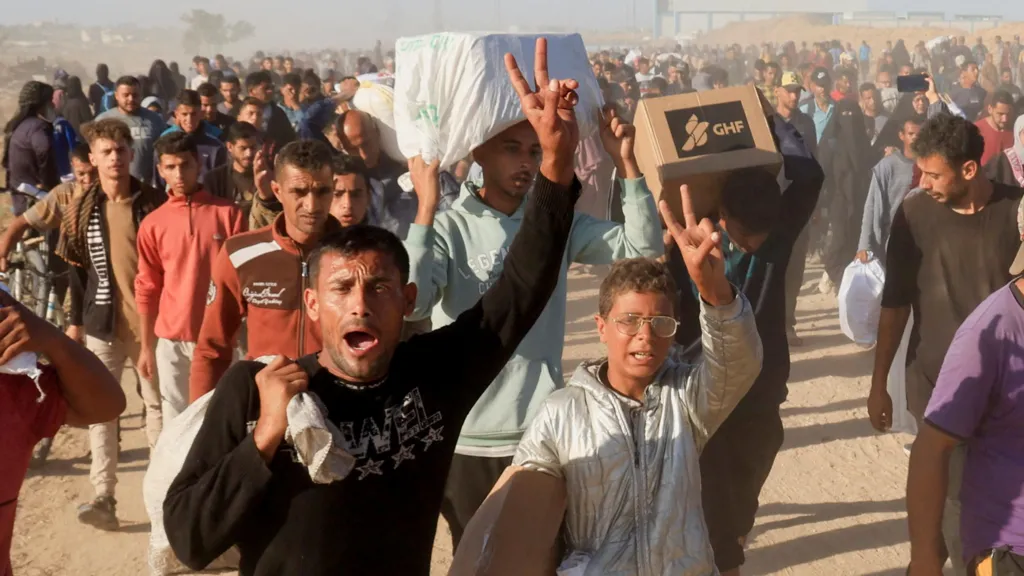Introduction
The humanitarian crisis in Gaza has intensified global scrutiny of foreign-backed aid organizations operating in the region. At the center of this growing controversy is the US-Israeli Backed Gaza Aid Group, an organization facing mounting criticism from international human rights groups and Palestinian advocates. Recently, 130 charities from around the world have collectively called for the group’s immediate shutdown, citing concerns over political interference, lack of transparency, and alleged undermining of Palestinian-led relief efforts.
This article examines the controversy surrounding the US-Israeli Backed Gaza Aid Group, the demands from the 130 charities, and the potential implications for humanitarian operations in Gaza.
What is the US-Israeli Backed Gaza Aid Group?
The US-Israeli Backed Gaza Aid Group is a humanitarian organization with operational ties to both the United States and Israel. Established to provide aid and support to civilians in Gaza, the group claims its mission is rooted in alleviating human suffering through medical assistance, food distribution, and infrastructure projects.
However, critics argue that the group’s affiliations with U.S. and Israeli entities raise concerns about its neutrality and motives. The group’s involvement in Gaza has long been viewed by some as politically driven, leading to skepticism within the international humanitarian community.
Why Are 130 Charities Demanding the Closure?
The unprecedented call for the shutdown of the US-Israeli Backed Gaza Aid Group comes amid rising tensions over its role in the region.
Allegations Against the Group
The 130 charities, which include prominent human rights organizations and regional NGOs, accuse the group of:
- Undermining Palestinian-led humanitarian initiatives
- Lacking transparency in its funding and operational practices
- Serving as a political instrument for U.S. and Israeli interests in Gaza
- Disrupting local aid coordination efforts
The charities argue that the group’s activities have contributed to the fragmentation of relief operations in Gaza, exacerbating the humanitarian crisis rather than resolving it.
The Joint Statement
In their coordinated statement, the charities emphasized that true humanitarian efforts must be guided by principles of neutrality, impartiality, and independence—standards they claim the US-Israeli Backed Gaza Aid Group fails to meet. They called for an immediate investigation into the group’s operations and urged international donors to withdraw support.
Reactions to the Closure Demands
The Group’s Response
In response to the closure demands, the US-Israeli Backed Gaza Aid Group has defended its record, stating that its sole mission is to support civilians suffering from the ongoing conflict. The organization denied allegations of political interference and emphasized its adherence to humanitarian principles.
A spokesperson stated, “Our work is strictly humanitarian. We reject any claims suggesting our efforts are politically motivated. Our priority remains providing essential aid to those in need.”
US and Israeli Officials React
Officials from both the U.S. and Israeli governments have expressed support for the aid group. U.S. State Department representatives dismissed the allegations, framing them as politically charged attacks aimed at undermining critical humanitarian efforts.
Similarly, Israeli officials praised the organization’s role, claiming that it provides vital assistance in a highly complex and dangerous environment.
Palestinian and Global Reactions
Palestinian authorities and civil society groups have largely backed the demands for the group’s closure. They argue that true aid for Gaza must be led by independent, locally trusted organizations, free from foreign political agendas.
International human rights groups have echoed concerns about the politicization of aid, calling for greater transparency and accountability across all foreign-backed operations in Gaza.
Broader Implications for Gaza and Regional Politics
The controversy surrounding the US-Israeli Backed Gaza Aid Group highlights ongoing tensions over foreign influence in Gaza’s humanitarian landscape. It raises critical questions about the intersection of politics and aid in conflict zones.
Humanitarian Challenges in Gaza
Gaza faces one of the world’s most dire humanitarian situations, with severe shortages of food, medicine, and essential infrastructure. The involvement of politically affiliated aid groups complicates efforts to deliver impartial, effective assistance.
Balancing Aid and Political Interests
The situation reflects broader global challenges, where foreign governments often fund aid groups that align with their strategic interests. In the case of the US-Israeli Backed Gaza Aid Group, the blurred lines between humanitarian work and geopolitics have ignited fierce debate.
Conclusion
The call to shut down the US-Israeli Backed Gaza Aid Group by 130 charities marks a significant moment in the ongoing conversation about humanitarian aid, neutrality, and foreign influence in Gaza. As the situation unfolds, the focus remains on ensuring that aid reaches those in need without exacerbating political divisions or undermining local leadership.
The future of humanitarian operations in Gaza may depend on restoring trust, promoting transparency, and prioritizing the voices of those most affected by the conflict.
Don’t Miss Out! Get the Latest News, Tips, and Updates from Us!


